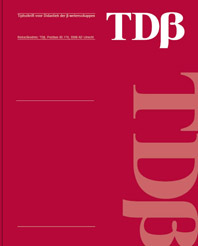Over rekenen, doen en weten – De ontwikkeling van schoolse impliciete en expliciete kennis over beweging op een hellend vlak

Tijdschrift voor Didactiek van de Beta-wetenschappen, uitgegeven door het Freudenthal Instituut, Universiteit Utrecht in de periode 1983-2014 |
Van Dooren, W. Ebersbach, M. Verschaffel, L. Tijdschrift voor Didactiek van de Beta-wetenschappen |
Calculating, doing and knowing – The development of academic implicit and explicit knowledge about movement on a slope
Previous research has shown that already before the start of formal physics education, students often acquire knowledge about the principles governing certain physical situations. Moreover, the responses given by learners seem to depend strongly on the way in which this knowledge is tapped. In this paper, we investigated students’ knowledge of the motion on an inclined plane, and more specifically on the acceleration (relation distance/time) and on the relation between the speed and the mass of an object. We specifically focused on students’ tendency to assume linear relations in these situations. A group of 8-, 11-, and 17-year olds was involved in three research conditions, that were developed to tap specifically students’ scholastic, implicit, and explicit knowledge about the same physical situations. The results showed that students of all age groups were inclined to improperly assume linear relations in the aforementioned situations. This tendency, however, was strongest in 11-year olds and weakest in 8-year olds. Moreover, substantial differences were found between the research conditions. The linear reasoning tendency was strongest in the scholastic condition, and much weaker in the tasks tapping implicit and explicit knowledge.
U moet ingelogd zijn om een reactie te kunnen plaatsen.


